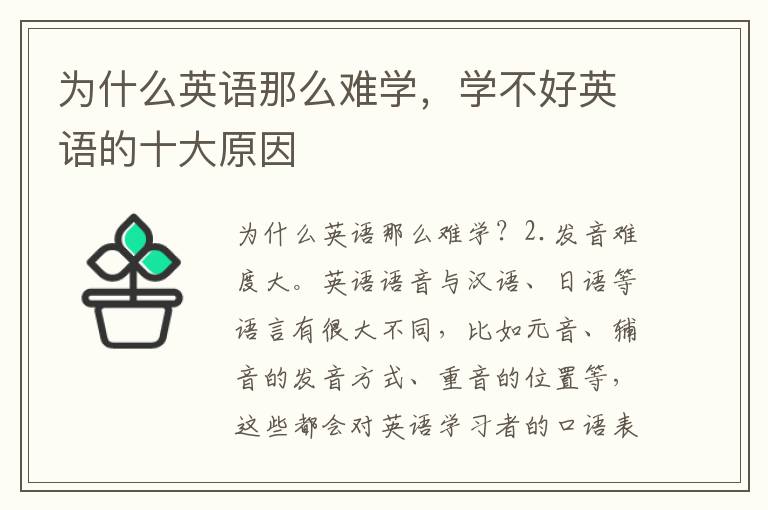【简介】感谢网友“雕龙文库”参与投稿,这里小编给大家分享一些[db:SEO标题],方便大家学习。
The political comeback of Shinzo Abe is one of the stranger twists in the recent, convoluted history of Japanese politics. Five years – and five prime ministers – ago, when he suddenly resigned after an ignominious year in office, few would have predicted a return. Back then, his mission to create a “beautiful Japan less ashamed of its wartime history was out of kilter with a population more exercised by continued economic stagnation.
安倍晋三(Shinzo Abe)卷土重来,在日本近年来错综复杂的政治史中是一个比较独特的事件。五年前(五年间日本产生了五任首相),在就任首相的一年间声名狼藉的安倍晋三突然辞职。当时,几乎没人预料到他会回归。当时,安倍晋三提出要将日本建设成一个“美丽国家,更坦然地面对二战时期的历史,但在更担心经济持续停滞的日本民众面前,这一目标有些不合时宜。
Much has changed since then. Most important is China’s more assertive push to reclaim the Japanese-controlled Senkaku islands, which Beijing calls Diaoyu. The so-called “Senkaku shock, the latest bout of which unleashed violent anti-Japan demonstrations across China, has convinced many Japanese that a newly risen China is something to be feared. That plays into the hands of Mr Abe, who has argued that Japan should ditch its pacifist constitution, which forbids it from having an army or a navy. Mr Abe would also like to increase military spending. His view looks reasonable.
时过境迁。如今最重大的变化是,中国在收回日本控制下尖阁列岛(Senkaku islands,中国称之为“钓鱼岛及其附属岛屿)方面采取了更为强硬的立常最近一轮所谓“尖阁列岛冲击(Senkaku shock),在中国全国范围内引发了反日暴力游行,这令许多日本人相信,刚刚崛起的中国是个威胁。日本民众的这种想法对安倍晋三是有利的。安倍晋三主张,日本应抛弃禁止日本保有陆军或海军的和平宪法。他还希望增加军事开支。这些主张在新的形势下似乎是合理的。
The second factor to swing Mr Abe’s way is the lousy performance of the Democratic Party of Japan, which has raced through three prime ministers in three years. The DPJ was elected in 2009 amid hope that it could rejuvenate Japan after more than half a century of political domination by Mr Abe’s Liberal Democratic party. But the DPJ failed to seize the moment. Japan continues to drift.
第二个有利于安倍晋三的因素是日本民主党(DPJ)糟糕的政绩。该党在过去三年内走马灯似的换了三任首相。2009年,在安倍晋三所在的自民党(LDP)主导日本政坛超过半个世纪之后,民主党赢得大眩当时的日本民众希望,民主党能够带领日本实现复兴。然而,民主党未能把握机会。日本继续走下坡路。
The third point in Mr Abe’s favour is his willingness to consider more radical solutions to persistent deflation. He has entertained the idea of imposing a 2-3 per cent inflation target on the central bank and of appointing a governor willing to print money until that goal is achieved. So long as Mr Abe does not overstep the mark by threatening central bank independence, his bolder stance on inflation is to be welcomed. If anything, he has backtracked a little too quickly.
第三个有利于安倍晋三的因素是,他愿意针对日本持续的通缩考虑采取更为激进的解决方案。他认为,可以要求日本央行把通胀目标定为2%到3%,并任命一位愿意不断印钞直到这个目标达成的央行行长。只要安倍晋三不越过威胁日本央行独立性这条红线,他对待通胀更为大胆的立场将会受到民众欢迎。如果说有什么问题的话,那就是他改口改得太快了一点。
No one should be under any illusion about Mr Abe. He was a lousy prime minister first time around. At home, he lacked leadership and fresh ideas. Abroad, his insistence on whitewashing some elements of his country’s wartime history – such as the Imperial Japanese Army’s routine use of sex slaves – was shameful and caused justified anger among neighbours.
任何人都不应对安倍晋三的执政抱有幻想。安倍晋三第一次担任首相时就表现很差。对内,安倍晋三缺乏领导力和创新思维。对外,他坚持将日本二战中的一些问题(比如日本皇军的“慰安妇制度)“洗白,这一行为是可耻的,当然也激怒了日本的几个邻国。
That Mr Abe now looks like the best candidate available is the result of two things: China’s misguided foreign policy, and the sorry state of a Japanese political system unable to produce someone better.
如今安倍晋三之所以看起来是日本现有的最佳首相候选人,有两个原因,一是中国外交政策失误,二是如今日本的政治体系状况不佳,无法产生更好的候选人。
The political comeback of Shinzo Abe is one of the stranger twists in the recent, convoluted history of Japanese politics. Five years – and five prime ministers – ago, when he suddenly resigned after an ignominious year in office, few would have predicted a return. Back then, his mission to create a “beautiful Japan less ashamed of its wartime history was out of kilter with a population more exercised by continued economic stagnation.
安倍晋三(Shinzo Abe)卷土重来,在日本近年来错综复杂的政治史中是一个比较独特的事件。五年前(五年间日本产生了五任首相),在就任首相的一年间声名狼藉的安倍晋三突然辞职。当时,几乎没人预料到他会回归。当时,安倍晋三提出要将日本建设成一个“美丽国家,更坦然地面对二战时期的历史,但在更担心经济持续停滞的日本民众面前,这一目标有些不合时宜。
Much has changed since then. Most important is China’s more assertive push to reclaim the Japanese-controlled Senkaku islands, which Beijing calls Diaoyu. The so-called “Senkaku shock, the latest bout of which unleashed violent anti-Japan demonstrations across China, has convinced many Japanese that a newly risen China is something to be feared. That plays into the hands of Mr Abe, who has argued that Japan should ditch its pacifist constitution, which forbids it from having an army or a navy. Mr Abe would also like to increase military spending. His view looks reasonable.
时过境迁。如今最重大的变化是,中国在收回日本控制下尖阁列岛(Senkaku islands,中国称之为“钓鱼岛及其附属岛屿)方面采取了更为强硬的立常最近一轮所谓“尖阁列岛冲击(Senkaku shock),在中国全国范围内引发了反日暴力游行,这令许多日本人相信,刚刚崛起的中国是个威胁。日本民众的这种想法对安倍晋三是有利的。安倍晋三主张,日本应抛弃禁止日本保有陆军或海军的和平宪法。他还希望增加军事开支。这些主张在新的形势下似乎是合理的。
The second factor to swing Mr Abe’s way is the lousy performance of the Democratic Party of Japan, which has raced through three prime ministers in three years. The DPJ was elected in 2009 amid hope that it could rejuvenate Japan after more than half a century of political domination by Mr Abe’s Liberal Democratic party. But the DPJ failed to seize the moment. Japan continues to drift.
第二个有利于安倍晋三的因素是日本民主党(DPJ)糟糕的政绩。该党在过去三年内走马灯似的换了三任首相。2009年,在安倍晋三所在的自民党(LDP)主导日本政坛超过半个世纪之后,民主党赢得大眩当时的日本民众希望,民主党能够带领日本实现复兴。然而,民主党未能把握机会。日本继续走下坡路。
The third point in Mr Abe’s favour is his willingness to consider more radical solutions to persistent deflation. He has entertained the idea of imposing a 2-3 per cent inflation target on the central bank and of appointing a governor willing to print money until that goal is achieved. So long as Mr Abe does not overstep the mark by threatening central bank independence, his bolder stance on inflation is to be welcomed. If anything, he has backtracked a little too quickly.
第三个有利于安倍晋三的因素是,他愿意针对日本持续的通缩考虑采取更为激进的解决方案。他认为,可以要求日本央行把通胀目标定为2%到3%,并任命一位愿意不断印钞直到这个目标达成的央行行长。只要安倍晋三不越过威胁日本央行独立性这条红线,他对待通胀更为大胆的立场将会受到民众欢迎。如果说有什么问题的话,那就是他改口改得太快了一点。
No one should be under any illusion about Mr Abe. He was a lousy prime minister first time around. At home, he lacked leadership and fresh ideas. Abroad, his insistence on whitewashing some elements of his country’s wartime history – such as the Imperial Japanese Army’s routine use of sex slaves – was shameful and caused justified anger among neighbours.
任何人都不应对安倍晋三的执政抱有幻想。安倍晋三第一次担任首相时就表现很差。对内,安倍晋三缺乏领导力和创新思维。对外,他坚持将日本二战中的一些问题(比如日本皇军的“慰安妇制度)“洗白,这一行为是可耻的,当然也激怒了日本的几个邻国。
That Mr Abe now looks like the best candidate available is the result of two things: China’s misguided foreign policy, and the sorry state of a Japanese political system unable to produce someone better.
如今安倍晋三之所以看起来是日本现有的最佳首相候选人,有两个原因,一是中国外交政策失误,二是如今日本的政治体系状况不佳,无法产生更好的候选人。











